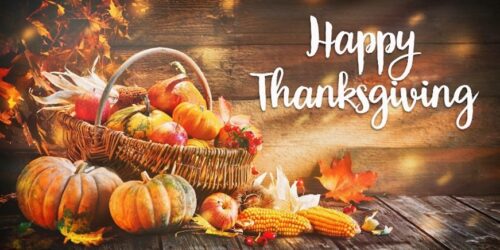Your Leadership Link by Cullen S. Gibson, Vice President
Pilgrims and Strangers
Good morning! I hope all of you as leaders are prepared for a busy Thanksgiving week! I think it is appropriate to look at a little history behind this holiday.
Each year, on the fourth Thursday in November, Americans gather for a day of feasting, football, and family. The official holiday was set by President Franklin D. Roosevelt in 1939 to correlate with the anchoring of the Mayflower at Cape Cod, which occurred on November 21, 1620. While today’s Thanksgiving celebrations would likely be unrecognizable to the early Pilgrims, it continues to be a day for Americans to come together.
The 102 passengers of the Mayflower were divided into two groups. Forty-one (41) of them were Pilgrims or religious dissenters called Separatists. They were seeking a new life in America where they could practice their religion in the manner they chose. The rest of the passengers, called “strangers” by the Pilgrims, included merchants, craftsmen, and skilled workers. About one-third of them were children.
 The 3000-mile voyage across the Atlantic lasted more than two months. When they finally sighted land (Cape Cod), the captain of the Mayflower knew right away that they were far north of their destination. The captain decided to land rather than chancing more days at sea. Almost immediately on the ship, an argument broke out over the landing location which was outside the authority of the “Virginia Company.” The strangers argued that the rules and regulations of the “Virginia Company” no longer applied, and they threatened to do as they pleased, “for none had power to command them.” Three thousand miles from home, a real crisis faced the colonists before they stepped ashore.
The 3000-mile voyage across the Atlantic lasted more than two months. When they finally sighted land (Cape Cod), the captain of the Mayflower knew right away that they were far north of their destination. The captain decided to land rather than chancing more days at sea. Almost immediately on the ship, an argument broke out over the landing location which was outside the authority of the “Virginia Company.” The strangers argued that the rules and regulations of the “Virginia Company” no longer applied, and they threatened to do as they pleased, “for none had power to command them.” Three thousand miles from home, a real crisis faced the colonists before they stepped ashore.
Imagine the situation: over 100 people, cut off from any government, with a rebellion brewing. If they did not work as a team, they could all die in the wilderness. Aboard the Mayflower, the Pilgrims and strangers made a written agreement or “compact” among themselves. This compact essentially created a form of self-government and continued the idea of law made by the people. This idea lies at the heart of our democracy.
As I reflect on this historical account, I have a sense of gratitude that our early ancestors worked out their differences before they settled on Cape Cod. And, more importantly, we should have that same sense of thankfulness for our family, friends, our work, and all the freedoms we enjoy in this great country.
Happy Thanksgiving to You and Yours!
